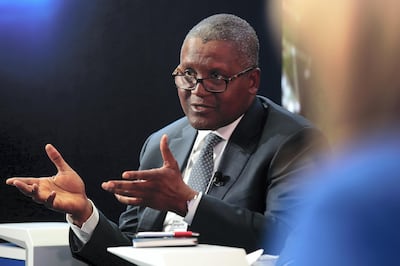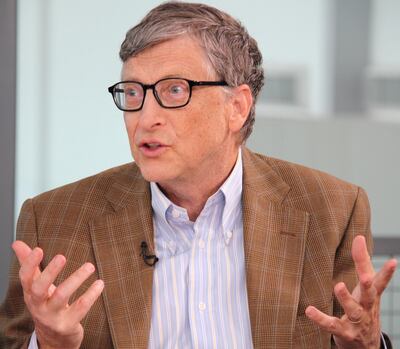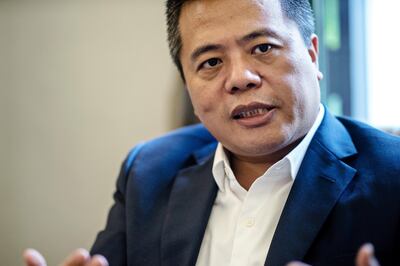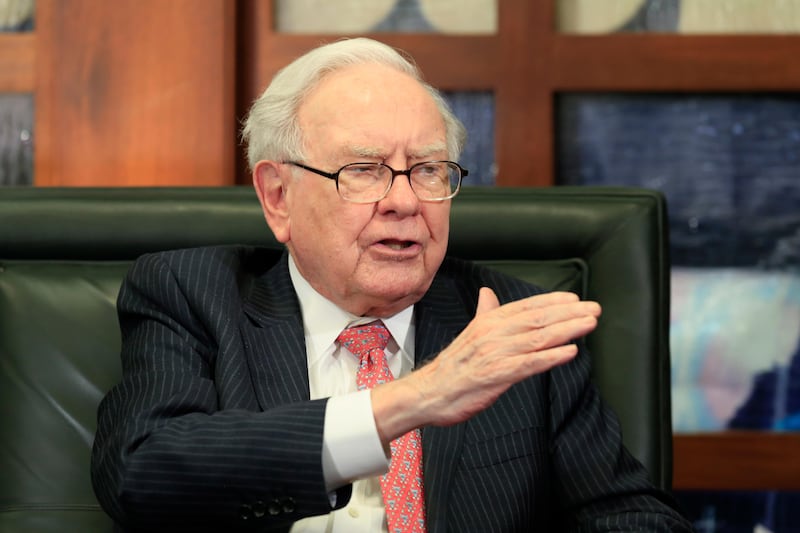Ageing billionaires
Sixty? That’s young for a rich person.
Six of the 25 richest Americans are over 80, according to the Bloomberg Billionaires Index. Carl Icahn and Charles Koch, for example, are 81. Earlier this month, Sheldon Adelson turned 84 and George Soros hit 87. Warren Buffett, the fourth-richest person in the world, with a net worth of $77 billion, celebrates his 87th birthday next week.
New data from the Internal Revenue Service show just how old the top millionaires and billionaires in the US are. While people over 80 make up only 3.7 per cent of the population, the IRS estimates they control a larger share of the nation's top fortunes than people under 50.
The wealthy have probably always been older than the general population. Despite the example of Mark Zuckerberg, the world's fifth-richest person, at 33, it usually takes a long time to amass great wealth. Still, the imbalance is striking.
Every few years, the IRS analyses the wealth of the richest Americans. Its Personal Wealth Study examines a rarefied group: people potentially subject to the estate tax, which is levied on individual fortunes of $5.5 million or more.
The latest study, released this month and estimating personal wealth in 2013, finds 584,000 Americans, or about 0.2 per cent of the US population, with a combined net worth of $6.9 trillion. People in their 80s and 90s control $1.2tn of that wealth. Adults under 50, roughly 43 per cent of the population, hold barely $1tn.
Wealthy people in their 80s have the highest average net worth of any age bracket. One reason is that octogenarians have less than half the debt, as a percentage of their total assets, than adults under 60.
So why are so many wealthy people living, and prospering, not just into their 70s but into their 80s and even 90s?

Aliko Dangote
Africa’s richest man, Aliko Dangote, plans to invest $20bn to $50bn in the US and Europe by 2025, in industries including renewable energy and petrochemicals.
The 60-year-old Nigerian cement tycoon aims to move into these territories for the first time in 2020 after completing almost $5bn of agricultural projects and an $11bn oil refinery in his home country, he said in an interview with Bloomberg Markets Magazine this month.
“Beginning in 2020, 60 per cent of our future investments will be outside Africa, so we can have a balance,” said Mr Dangote, who’s worth $11.1bn, according to Bloomberg’s Billionaires Index. Dangote Group will consider investments in Asia and Mexico, but will focus mainly on the US and Europe, he said. “I think renewables is the way to go forward, and the future. We are looking at petrochemicals but can also invest in other companies.”
Mr Dangote has diversified rapidly in the last five years, both geographically and into new industries. He’s expanded Dangote Cement, which accounts for almost 80 per cent of his wealth, into nine African countries aside from Nigeria. In 2015, he began building a 650,000 barrel-a-day refinery near Lagos, Nigeria’s main commercial hub, and he’s constructing gas pipelines to the city from Nigeria’s oil region with US private equity firms Carlyle Group and Blackstone Group. He said in July he’d invest $4.6bn in the next three years in sugar, rice and dairy production.
Shares in Dangote Cement rose 2.7 per cent to 219.80 naira in Lagos Thursday, extending their advance this year to 26 per cent.
Mr Dangote, who mostly lives in Lagos and counts Bill Gates among his friends, said he was a passionate industrialist and ruled out moving into newer sectors such as telecommunications or technology.
“When I look at telecoms, for instance, I think that would be very tough for us,” he said. “Some players have been in this market for 17 years already. There’s no way you can go and jump over somebody after 17 years of their hard work. So I think we would pass when it comes to telecoms today. There are other businesses that we understand better.”
–––––––––––––––––
Read more:
Tortilla queen Graciela Moreno Hernandez keeps her billions after beating her love rival in court
–––––––––––––––––
The billionaire also said he has no plans to enter Nigerian politics.
“I’m not interested,” he said. “I enjoy a lot of what I am doing, and I also love my freedom -- and I don’t have too much. The little I have, politics would take away. There are businessmen who are interested in politics. I’m not one of them.”

Bill Gates
Bill Gates made his largest single gift since the turn of the century, giving away Microsoft shares that accounted for 5 per cent of his fortune, the world’s biggest.
The billionaire donated 64 million of the software maker’s shares to the Bill & Melinda Gates Foundation on June 6, according to Securities and Exchange Commission filings released Monday. The shares were valued at $4.6bn at the time.
It’s the largest gift of Microsoft shares that Gates, 61, has made since 2000. He gave away $16bn worth of the stock in 1999 and $5.1bn a year later, according to calculations by Bloomberg.
"It’s a change in how he distributes that asset," said Ben Silverman, research director at InsiderScore, noting that Gates has been reducing his stake methodically for years through share sales to fund his foundation.
Washington-based Microsoft didn’t respond to requests for comment.
Bill and Melinda Gates have given away about $35bn of stock and cash since 1994, based on the value of the shares at the time of gifts, according to a review of Gates Foundation tax returns, annual reports and regulatory filings. Gates created the Giving Pledge in 2010 with billionaire investor Warren Buffett, and they have been joined by 168 others who promised to give the majority of their wealth to charity.
Gates probably has directed more than 700 million shares of Microsoft into the foundation, adjusting for stock splits, and he would be about $50bn richer today had he kept them. The June gift represents 38 per cent of his holding in the company and is the latest in a long line of Microsoft share disposals that have whittled his stake from 24 percent in 1996 to 1.3 per cent now.

Chen Tianqiao
A dozen years ago, the largest internet company in China wasn’t Alibaba or Tencent, but game developer Shanda Interactive Entertainment. Its founder was a young man named Chen Tianqiao, who had become a billionaire at 30.
Mr Chen was more prominent than Alibaba’s Jack Ma for much of the last decade - then he disappeared. He left China, dropping out of public view almost completely. He took his Nasdaq-listed company private in 2012.
Mr Chen is finally ready to talk publicly again. Now 44, he’s living in Singapore with plans for his next act. During a visit to his office there, he explained what led him to give up his life’s work and cede the market to Alibaba Group Holding and Tencent Holdings, whose founders are now the country’s two richest men. It started with panic attacks in his 30s, then escalated amid the rising stress of competition and government regulations. He eventually decided he had to salvage his own health.
“As I watched the sunset every night, I thought I would never wake up,” said Mr Chen, sitting near the painting of a swirling dancer with his wife in a two-story colonial house that serves as their office.
His experience ultimately led him to a new path. The struggles with his own mental condition, combined with his Buddhist beliefs, convinced him to focus on research of the human brain.
He has set aside $1bn for the effort, out of a personal fortune of at least $2.4bn , according to the Bloomberg Billionaires Index. That includes $115 million that Mr Chen and his wife have already given to the California Institute of Technology to establish the Tianqiao and Chrissy Chen Institute for Neuroscience. The rest will be used to directly fund young scientists and set up Chen University somewhere in the US.
The concept for the school is unusual to say the least: it will bring together academics in everything from neuroscience, biology and psychiatry to philosophy and divinity studies, and encourage them to work together. Mr Chen thinks it is time to focus on improving humans’ emotional well-being after centuries of effort to increase living standards.
“This will be a university whose mission is to try to answer who we are and where we come from,” he said. “For thousands of years, we improved our happiness through changing the physical world. We now have to solve this problem by exploring inward.”






